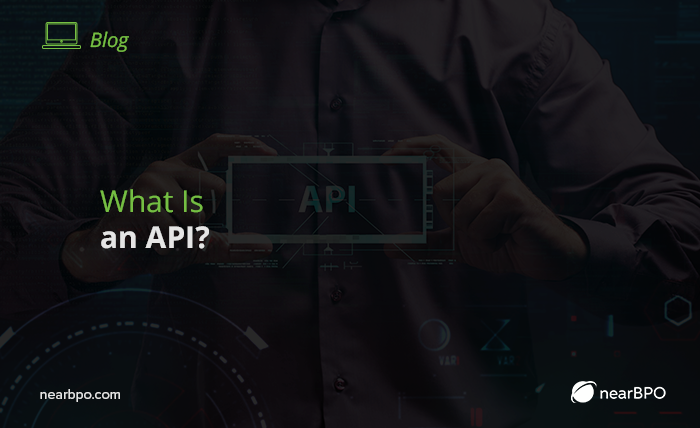Defining what an API is
The goal with this article is to explain what an API is, and how important they are in our modern world.
The good first step is giving the definition from WikiPedia: an API or an Application Programming Interface ¨is a set of subroutine definitions, protocols, and tools for building application software.¨ Well, let’s say that after reading that, you still don’t really understand a single word of that definition. That is why in this article we are going to try to explain what an API is in plain English.
APIs are tools that have the significant role of getting a message from point A to point B, and back. All this with the purpose of establishing a connection between two programs or a program and a database, for them to work together, securely, and in harmony. Their work doesn’t stop there though; behind an API there are countless processes that allow many companies to bring forward plenty of information that wouldn’t be available to the final user without going through the filter of an API. There is no better way to understand APIs but through examples — and believe it or not, APIs are all around us.
APIs Examples
First— and probably the easier one— is to imagine an API as a waiter who needs to take your order and then pass it to the chef so he can cook it. Then, the waiter brings it from the kitchen and delivers it to you. Your food arrives with all your specifications: well-done steak, no onions, and the dressing on the side. All these were possible thanks to the waiter that took your order exactly as you requested it. As you can see, the waiter/API has a significant role to play in this interchange.
Now let’s focus on a less abstract example. If you have bought an airplane ticket through an airline website or app, you have already used an API. First, from the moment we introduce our flight’s destiny and dates, an API is processing all the details we enter and delivering it to the main airline database to take the right information from there and bring it back to us with all the specifications we required. Second, when we choose our seat on an airplane, an API is delivering the information of what seat we have picked up to make it instantly unavailable for other buyers. Lastly, almost every airline nowadays sends a confirmation email afterward with all your flight’s details. If you have a smartphone and your email is configured in it, you will notice that your phone’s calendar extracts the information from your email and automatically creates an event on the day of your flight. But, how does this happen? Easy, an API connects your email app to your calendar app, and pass the data from one to the other. Again, API is the messenger between two points.
As a final API example, let me show you what a remarkable job an API has in the financial world. If you use your bank app or web portal to do daily transactions or to see your account balance, you know that, in theory, you and the bank are the only ones allowed to see this private information. Well, a few decades back we weren’t able to do this online because there wasn’t a filter powerful enough to take your private information only to you and the bank without having the risk of launching it to the whole world in the process. APIs in the financial world implies that your bank information goes through a secure channel to ensure that it is well protected while transferring and delivering the data to you.
Why Are APIs so Important?
Most of us aren’t aware of what a vital job APIs have in our present world. That’s because APIs work behind the curtains, they carry the responsibility of delivering accurate information and do so quickly and as secure as possible. The interconnectivity of the modern internet is based on APIs, so without them we would be back at static websites and legacy-style on-premise ERPs
Well, I hope that if you were having a hard time understanding APIs, you are now more aware of what they are and how and where they work. In the meantime, make sure you continue to keep investigating and asking developers about APIs and how useful they are.


